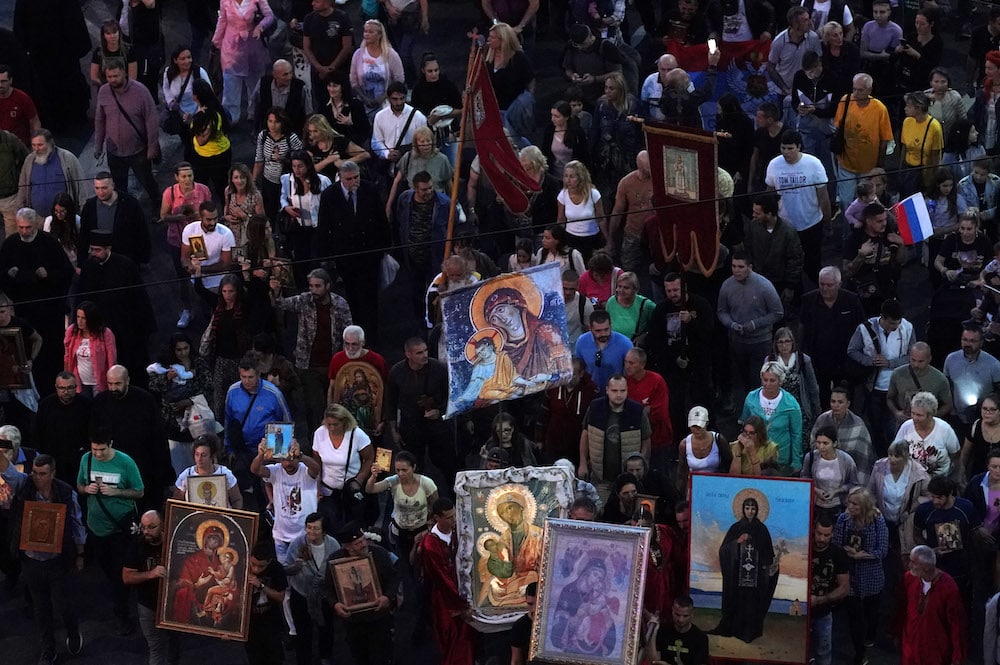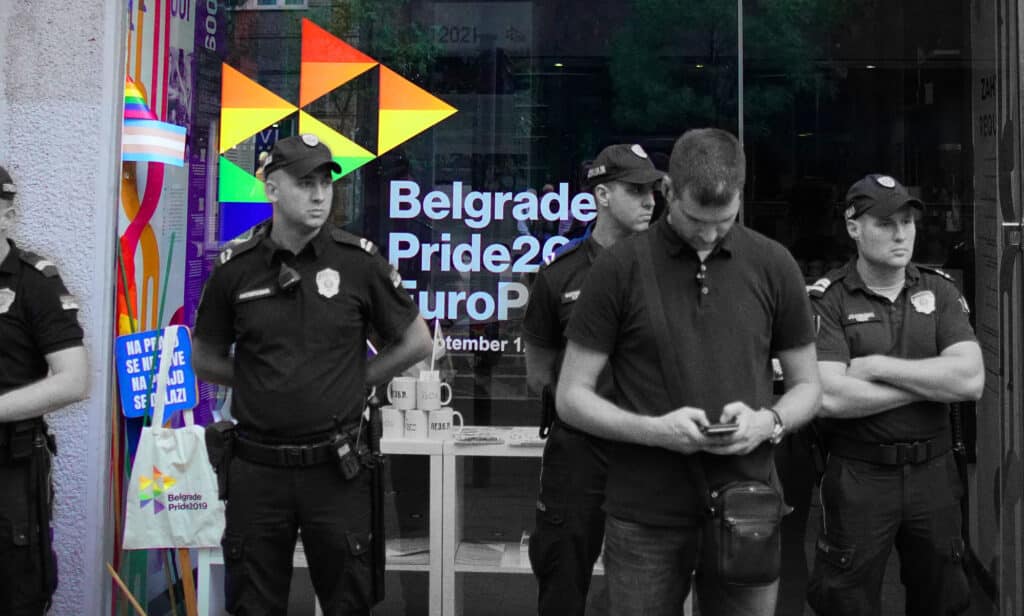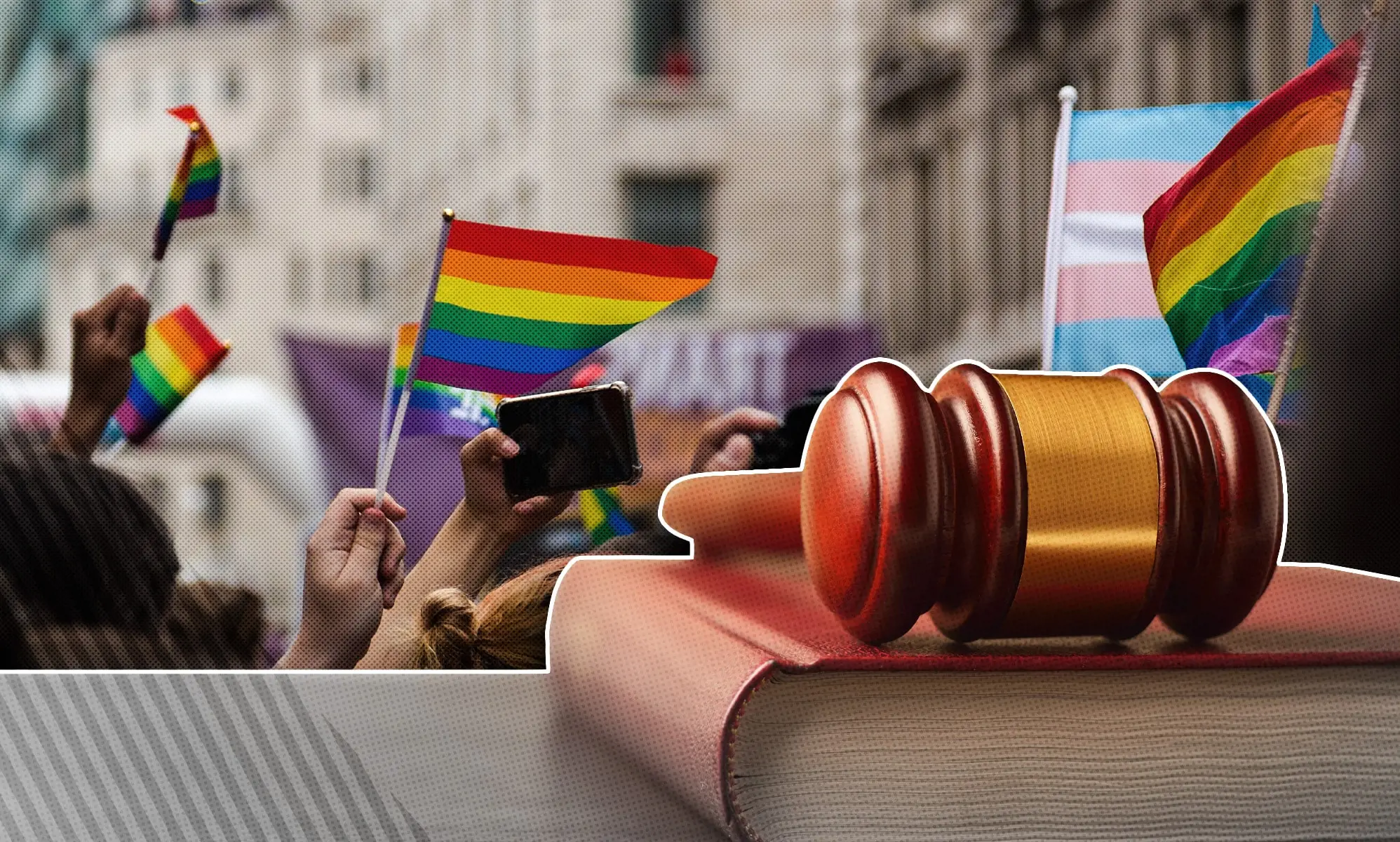A woman take a photo using her mobile phone of the EuroPride flags fluttering during the opening ceremony of the EuroPride 2022 in Belgrade. (Oliver Bunic/Getty)
EuroPride organisers have vowed to fight Serbia’s “disgraceful” ban on its planned march in Belgrade.
The European Pride Organisers Association (EPOA) are preparing to mount a legal challenge after Serbian police banned the route of this year’s EuroPride, expected to take place on Saturday (17 September).
The ban is purportedly due to “security concerns”, after two large-scale anti-LGBTQ+ protests in the streets of Belgrade saw evangelical homophobes advocating for the removal of EuroPride, with cries of “save our children.”
“Police have denied the appeal against the ban. [Belgrade Pride] are now preparing the case for the Serbian Administrative Court. We will never let hate win,” organisers tweeted on Wednesday (14 September) with an image that read: “Threats of violence allowed. Peaceful protest banned.”

The group also shared a petition urging Serbian prime minister Ana Brnabić and president Aleksandar Vučić to support EuroPride 2022 and fulfil their commitments to organisers “which would prove their devotion to equality and human rights in the country they are leading”.
“To ban or recommend cancelling the event because of threats from those who oppose equality and human rights would be giving in to their hatred. Hate must not be allowed to win and EuroPride must go ahead with the support of the Serbian government,” the petition states.
At the time of writing, it has more than 27,000 signatures, and seems certain to reach its target of 30,000 supporters.
‘A demonstration for fundamental rights and freedom’
President Vučić announced EuroPride was cancelled on 27 August – a day before the first protest by clergy from the Serbian Orthodox Church.
In a statement, he said the event would “happen but in some other and happier time”.
However, organisers insisted they would go ahead, insisting he didn’t have the authority to cancel the march.
On Tuesday (13 September), police said they were banning the route of the march.
On the same day, prime minister Brnabić spoke at a heated human rights conference, telling protestors to “stop criticising” because she was “pushing the boundaries by at least a meter”.
European Parliament members have taken the matter into their own hands. Several MEPs have already urged for the weekend’s proceedings to go ahead, including 145 parliamentary members who signed a petition sent to Vučić by the European Parliament president on Wednesday (14 September).
On the same day, during a parliamentary procession, German MEP Terry Reintke stood up to show her support to Belgrade Pride organisers, saying: “It’s a demonstration for freedom, for democracy, for fundamental rights and diversity, a pan-European demonstration.
“We are in very close contact with the Serbian government as well as with the Pride organisers. But I wanted to use this opportunity for this parliament to show that we are a parliament that stands for the fundamental right of freedom of assembly and with the LGBTI community all across the European Union and in Serbia,” she said, receiving a standing ovation.
In response, president of the European Parliament Roberta Metsola sent a message of solidarity to “young and old” LGBTQ+ identifying people, adding that “in our Europe, you can live how you wish to live.”

It remains yet to be seen whether Serbia’s actions will affect its candidacy for joining the EU, which it has been negotiating since 2009. Judging from the pushback from European Parliament members and human rights organisations, the Serbian government could see negotiations stall.
Executive director of LGBTI advocacy group Forbidden Colours, Remy Bonny, said: “LGBTIQ+ equality is what makes the EU a proud, loving union. We’re not fully there yet, but banning [EuroPride] would constitute a serious setback for Serbia’s European future.”
